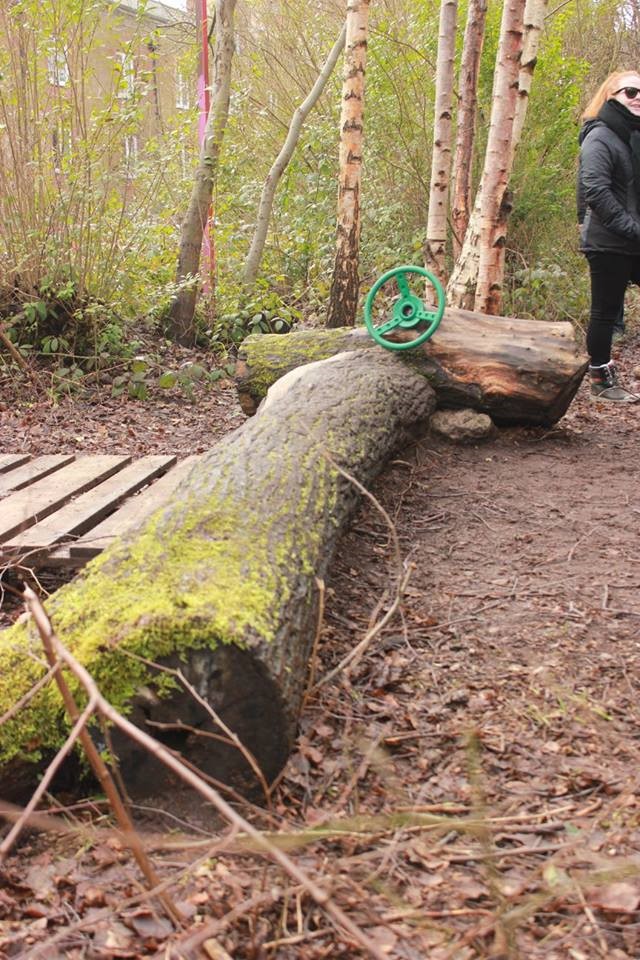17 Inclusion

Ambrosini, K. (2014). Accessible outdoors: Kids with Social, Emotional and Physical Disabilities Go Outside! Retrieved from https://www.childrenandnature.org/2014/12/27/accessible-outdoors-kids-with-social-emotional-and-physical-disabilities-go-outside/
Nature brings us to a different world and the way we see the world around us. This article describes six steps to increasing outdoor participation and challenges parents and educators to consider motivation, technology supports, and predefined approaches to mobility.
Brewer, K. (2016). Nature is the best way to nurture pupils with special educational needs. Retrieved from https://www.theguardian.com/teacher-network/2016/may/01/nature-nurture-pupils-special-educational-needs-outdoor-education
This article advocates that the best way to get the most out of a classroom is being able to leave it and take learning outside. Case study examples are reviewed and conclude that lide skills and academic skills are enhance through outdoor learning. The article specifically identifies, that being able to read in the outdoors helps calm learners.
Bundy, A. C., Wyver, S., Beetham, K. S., Ragen, J., Naughton, G., Tranter, P., … Sterman, J. (2015). The Sydney playground project- levelling the playing field: A cluster trial of a primary school-based intervention aiming to promote manageable risk-taking in children with disability. BioMed Central (BMC) Public Health, 15(1125), 1-6. doi:10.1186/s12889-015-2452-4
This journal article discusses how children and adults can provide opportunities to engage in manageable risky play. Discussion identifies ways to change how parents and educators view risk taking and encourage children with disability to take responsibilities for their on actions in outdoor play.
Burns, N., Paterson, K., & Watson, N. (2009). An inclusive outdoors? Disabled people’s experiences of countryside leisure services. Leisure Studies, 28(4), 403-417. doi:10.1080/02614360903071704
This article explores people with disabilities attitudes towards and experiences of woodland and outdoor environments. Authors argue that people with disabilities reasons for being outdoors are more complex than simply seeking ‘rehabilitation’. Understanding of the uses and views of the outdoors from the perspective of a person with disability is essential to the provision of services that extends beyond the removal of physical barriers.
Cerebral Palsy Guidance. (2018). Enjoying the great outdoors with a physical disability. Retrieved from https://www.cerebralpalsyguidance.com/cerebral-palsy/living/enjoying-outdoors
Experiences in the outdoors benefit everyone, even those who have a physical disability. Studies show that mental and physical health is improved when you are spend more time in the outdoors.
Spencer, G., Bundy, A., Wyver, S., Villeneuve, M., Tranter, P., Beetham, K., … Naughton, G. (2016). Uncertainty in the school playground: Shifting rationalities and teachers’ sense making in the management of risks for children with disabilities. Health, Risk & Society, 18(5-6), 301-317. doi:10.1080/13698575.2016.1238447
Protectionist concerns of educators and parents are pronounced for children with disabilities, as assumptions about limited capabilities complicate and structure the everyday play experiences for children. Drawing on findings from the Sydney Playground Project, this article discusses discomfort experienced by school staff in their responses to uncertain moments in children’s play. The report includes qualitative data collected from two schools between October 2014 and September 2015 using video observations of children’s play and teachers’ responses to an online Tolerance of Risk in Play Scale. The findings point out the competing logics and forms of sense making used by teachers to manage the unknown. The analysis explored the ways in which risk strategies were (re)framed by school staff and how ‘letting-go’ or embracing uncertainty offers children opportunities to engage in risk-taking.

